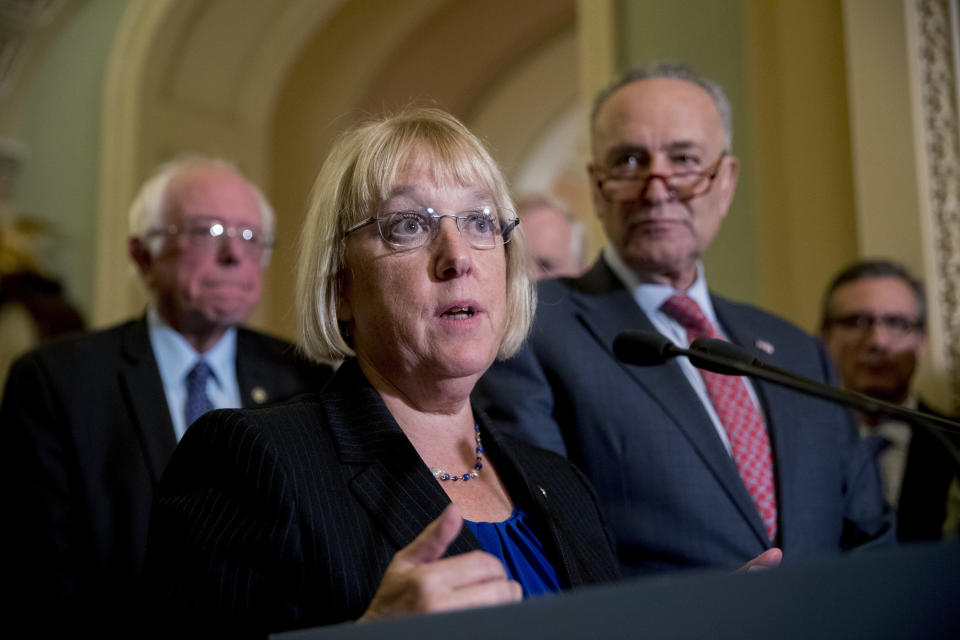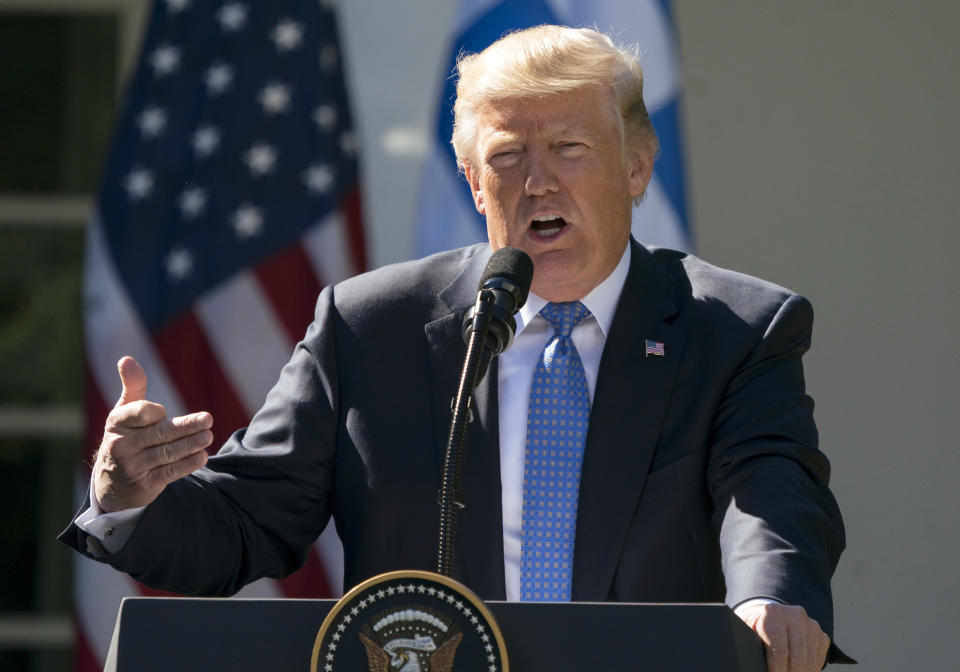Senators reach bipartisan deal to restore Obamacare payments
WASHINGTON — Sen. Lamar Alexander, R-Tenn., and Sen. Patty Murray, D-Wash., on Tuesday announced a deal to stabilize Obamacare markets that the president tentatively blessed before backpedaling on that support. Republicans are selling the plan as a stopgap measure to stabilize individual markets for two years as they muster the votes to repeal and replace the law entirely.
The deal would restore billions of dollars in cost-sharing reduction payments to insurers that the president announced last week he would no longer make, prompting concerns of steep premium hikes in the individual markets.
It would also allow states to sell stripped-down “catastrophic” or copper plans to anyone, not just people under 30 as allowed under current law, according to Alexander. The deal would allow “many more states” to qualify for waivers that give them some flexibility in what plans they sell on their exchanges, though exactly how is still unclear.
And, in a boon to Democrats, the deal restores more than $100 million in Obamacare enrollment outreach funds stripped by Trump. Those funds would be distributed as grants to states.

At the White House, President Trump gave his blessing to the emerging agreement but emphasized that it would be “a short-term deal” on the road to shifting health care spending to block grants awarded to the states.
“The solution will be for about a year or two years, and it’ll get us over this intermediate hump,” Trump told reporters during a joint press appearance in the Rose Garden with Greek Prime Minister Alexis Tsipras. “It is a short-term solution.”
However, on Wednesday morning the president had already appeared to change course, tweeting he could “never support” bail outs of insurance companies.
The slim Republican majority in the Senate failed to repeal Obamacare over the past few months and the GOP has put off trying again until after tax reform. In the meantime, Trump took several blows to the Obamacare that would likely result in premium increases for the millions of Americans who purchase insurance in the individual markets. This deal, if it passes, would reverse those moves.
“The president likes this idea,” Alexander said.
Alexander said he believed Republican senators Lindsey Graham, Bill Cassidy, John McCain, Lisa Murkowski and Susan Collins would likely back the deal, and that he was actively “rounding up” co-sponsors on both sides of the aisle.
“There is an emerging, encouraging consensus,” Alexander said.

But Senate Majority Leader Mitch McConnell has made no guarantee to bring the deal to the Senate floor for a vote, and barely mentioned the deal during his weekly press conference. Sen. John Thune, R-S.D., said he believed that McConnell would move on the deal if the votes are there.
“Until we get to another vote on Graham-Cassidy or some other alternative, this may be the best way to go forward,” Thune said, mentioning the most recent failed attempt to repeal Obamacare.
Senate Minority Leader Chuck Schumer said Democrats expressed “broad support” for the deal in their weekly policy lunch, but said details still remained to be worked out.
It’s still unclear if conservatives, particularly those in the House, would go along with the plan. Rep. Mark Walker, R-N.C., chair of the Republican Study Committee, has repeatedly said that Congress should not fund cost-sharing reduction payments.
“I’m hoping everyone understands how much resistance there is [among conservatives] for funding these markets that will never be self sustaining,” Sen. Ron Johnson, R-Wis., told reporters. “In order to get them to agree to fund these, we need to see significant market reforms to reduce the premiums.”
— Olivier Knox contributed to this report.
Read more from Yahoo News:
64 hours in October: How one weekend blew up the rules of American politics
FBI document cache sheds light on inner workings of Russia’s U.S. news (and propaganda) network
Photos: U.S.-backed militias defeat Islamic State in Raqqa, Syria


